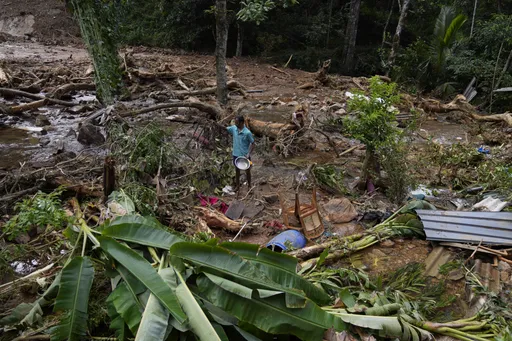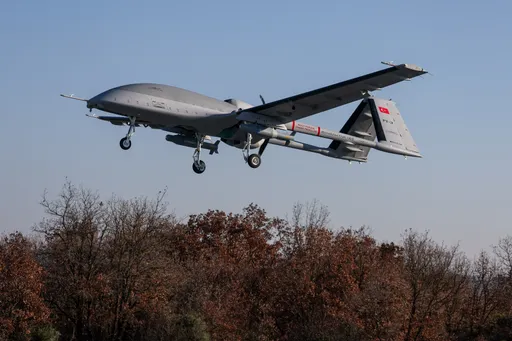In the past few weeks, the agenda for Libya's peacebuilding efforts has been overshadowed by political uncertainty, complicated debates around legitimacy, and the fear of another civil war.
Following the move of the Tobruk-based and pro-Haftar House of Representatives (HoR) to name former interior minister Fathi Bashagha as Prime Minister, tensions in the country have reached a tipping point. The dithering from all sides had experts think that positive gains made by the stakeholders in the past few years were being reversed, depriving the country of the chance to hold elections and have a democratically approved authority.
Here's a breakdown of what happened in the past few months.
Dbeibah’s meeting with political parties
The Libyan Prime Minister (PM), Abdulhamid Dbeibah, met with several political parties on Wednesday in a bid to prepare his country for the elections.
Stressing the need to advance the electoral process and hold it on time, the Libyan PM has started an initiative called “Restoring the Trust to the People.”
As the Libyan PM, who was installed last year as part of a United Nations-led peace process, he has been insisting that he will only hand over power to an elected administration. Dbeibah also stressed the importance of political parties and announced his support for them.
An attempt to fray out Dbeibah
The PM-designate Fathi Bashagha, on the other hand, warned Libyan government institutions to not abide by Dbeibah’s orders.
On Tuesday, Bashagha declared the Dbeibah-led Government of National Unity (GNU) a caretaker authority and claimed that its mandate has ended, despite the UN-sponsored Libyan Political Dialogue Forum making it clear that the GNU’s mandate is valid until June 2022.
The PM-designate also urged government institutions not to take further legal and administrative measures.
On Wednesday, a day after his written statement, Bashagha also accused the GNU of using its power to favour itself, and further, claimed that Dbeibah’s government is taking advantage of his government’s aim of avoiding violence and military escalation.
The impact of Russia’s military operation in Ukraine
The oil-rich country’s importance has come to the fore once again in the eyes of the West, following Russia’s attacks on Ukraine. To avoid violence in Libya, where Russia has been among the major players, the UN mediators and the US are trying to bring Dbeibah and Bashagha to the table.
The first of the two main reasons behind these international efforts is the fact that Bashagha came to power with the support of warlord Khalifa Haftar, and the HoR, whose main ally is the Kremlin-linked Wagner paramilitary group.
Secondly, since pro-Haftar groups threatened to close oil fields amid energy wars between Russia and the West last week, several key countries in OPEC (the Organization of the Petroleum Exporting Countries) are concerned about a further energy crisis where Libya could play a central role in softening the impact of conflict in Ukraine.
A day after the start of Russia’s military operation in Ukraine, the French, British, German, Italian and US embassies said in a mutual statement: "All actors should respect the unity, integrity, and independence" of the National Oil Corporation of Libya.
The stance taken by the international community
While calling the issue between Dbeibah and Bashagha “purely Libyan,” the UN is trying to prevent the collapse of the 17-month-old ceasefire and calling for calm while offering to provide mediation in the standoff.
Besides, permanent members of the UN Security Council avoid siding with a particular figure, whereas Moscow backs the Bashagha-led rival government.
In a briefing to the UN Security Council last week, Under-Secretary-General Rosemary DiCarlo warned that “the Libyan executive is facing a crisis that could, if left unresolved, lead to instability and parallel governments in the country."
Also, Richard Norland, the US ambassador to Libya who met Fathi Bashagha in Tunis last Sunday, said, “choosing one camp at the expense of the other is not an option."
Türkiye, another major power in the country that has been backing internationally recognised and UN-backed governments and processes, has also called on the two sides to refrain from steps that could cause new clashes.
Urging Libyan authorities to keep following the democratic path, Türkiye’s National Security Council, following its recent meeting on Wednesday, said: “A calm in Libya that was achieved through big sacrifices was an opportunity for peace.”
The HoR's unwillingness to nominate members for joint committee
As the UN Secretary-General’s special advisor in Libya, Stephanie Williams has urged both parties to accept her mediation over a new constitutional basis to hold elections; she is ready to host representatives from the Libyan High Council of State in Tunis. Still, the pro-Haftar HoR has not responded to her offer yet and has not appointed delegates for a joint committee.
Following the developments, on Thursday, the High Association of Unions, Syndicates, Assemblies, Councils, and Civil Society Groups of Libya on Thursday called on the Libyan Presidential Council to relieve the HoR and the High Council of State from duty and issue a presidential instruction to organise an online referendum on the draft of the constitution within a specific timeline.
It also suggested holding elections before the end of summer this year.
“We call on the UNSMIL (United Nations Support Mission in Libya) to work within the limits of its mandate and to avoid looking away from the constitutional basis for the democratic process. Local pressure should escalate to press the UNSMIL, Presidential Council, High National Elections Commission and Government of National Unity to allow the Presidential Council to assume legislative authority regarding elections. We also urge the Supreme Court’s General Assembly to activate the constitutional circuit court in time for the constitutional referendum and before the final results.” The Association added.
























